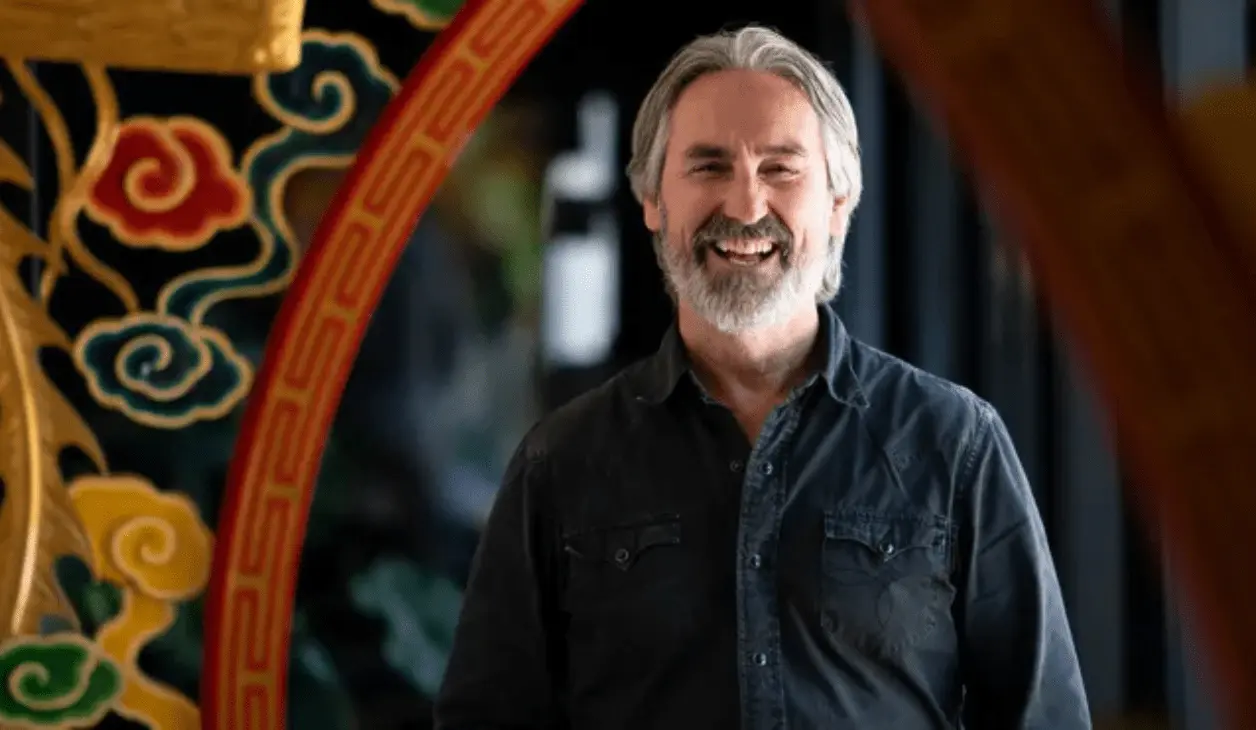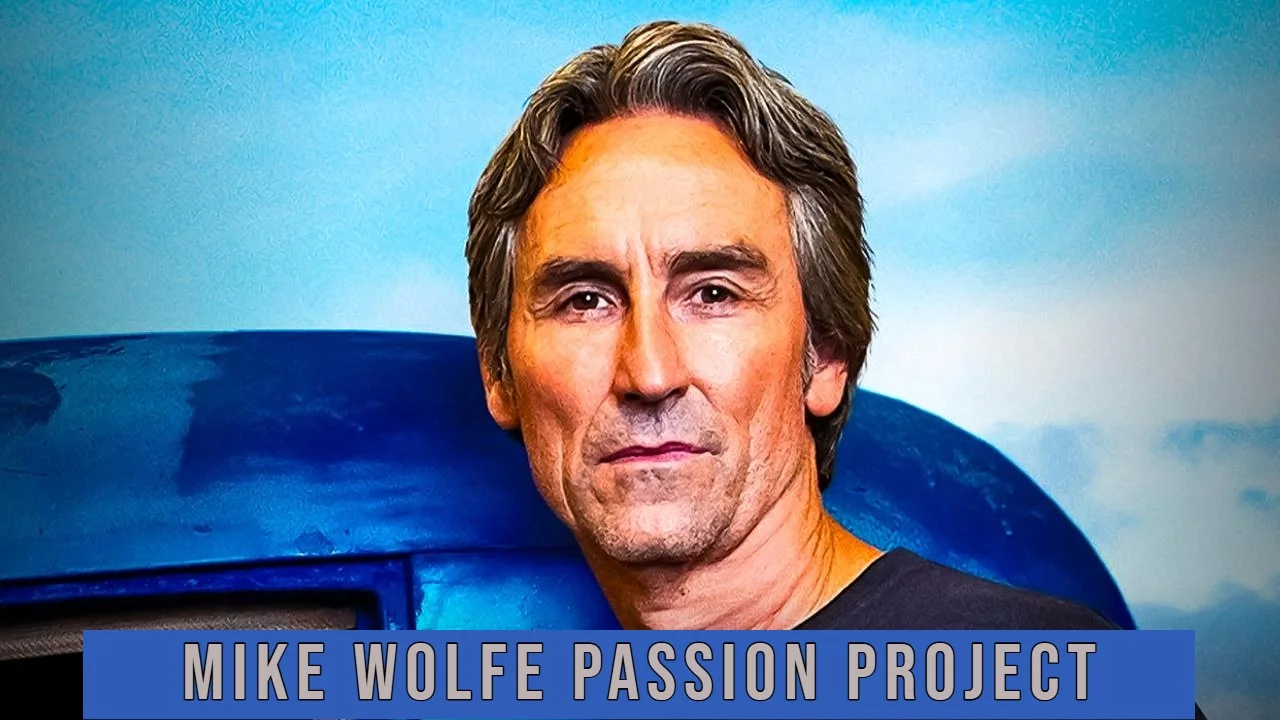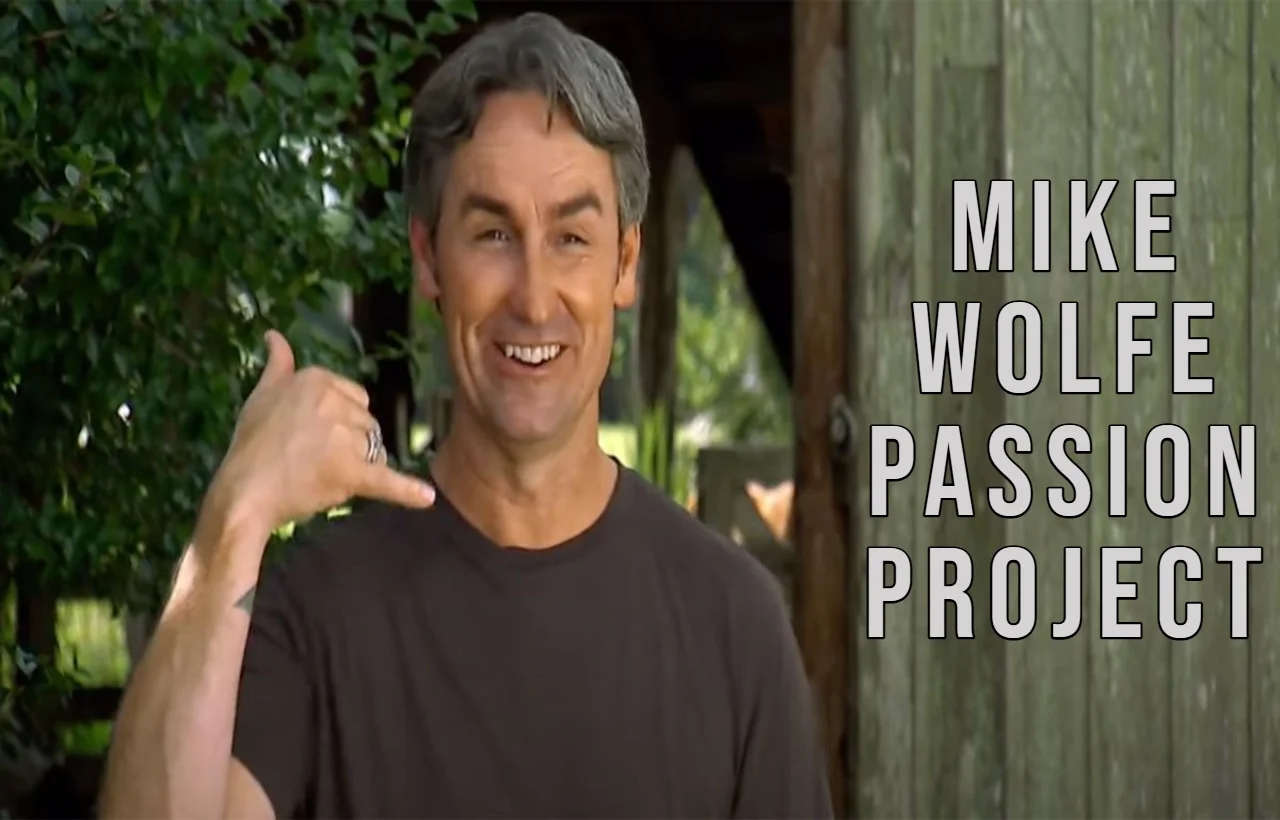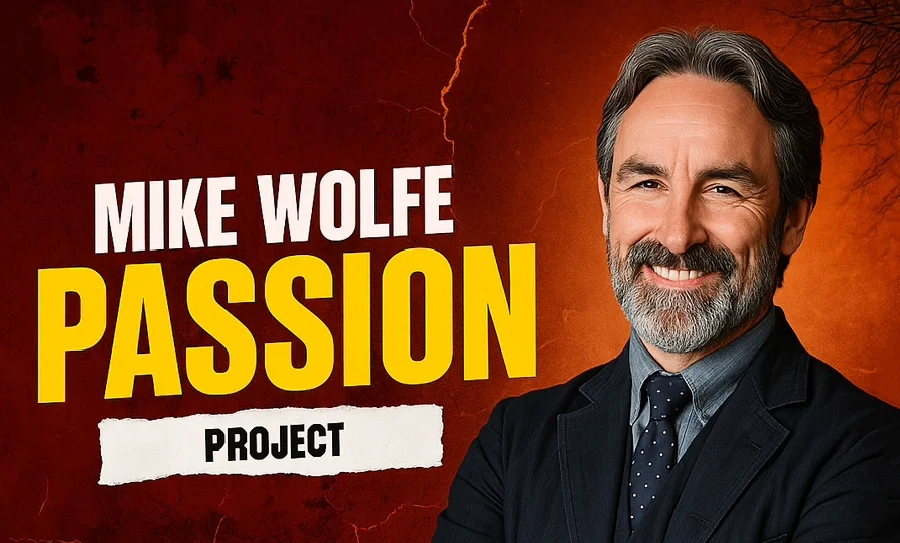The author of this paper is a keen narrator and researcher and a specialist in the development of long-form content that combines history, culture, and contemporary views. The writer strongly values work that conserves heritage and fills the community with inspiration, so his keen insight into the topics that should be examined more closely flows naturally. Having focused on writing in-depth, thoroughly researched articles, the author would always like to make her readers feel inspired and informed by what she writes. The author aims to illustrate the importance of creativity, preservation, and the human interest in creating valuable legacies by discussing things like the passion projects of Mike Wolfe passion project.
Introduction
Whenever the name of Mike Wolfe passion project comes to mind, most people automatically relate it to the popular television series American Pickers, in which he has toured the nation locating lost treasures, buried antiques and the tales that accompany them. Wolfe is not merely a face on a screen or a man who deals in collectibles, he is a person who loves history, telling stories, and preserving history by keeping physical objects. His projects tend to share this passion, and what most people are unaware of is that outside his work on television, Wolfe devoted his time to projects and endeavors that can only be called passion projects. These are not just made with an aim of entertainment or making money. Rather, they represent his true commitment to preserving and carrying on a tradition of valuing those things that most people would no longer see value in.
The term Mike Wolfe passion project has come to refer not only to a particular project, but to a sequence of projects that have allowed Wolfe to combine his professional knowledge with personal interests. It is concerning the adventure of a man who thinks that things speak, that societies are worth reawakening and that history cannot be taught in books only, but in the things and tales that constituted the warp and woof of everyday life. In this blog post, we are going to discover the background of Wolfe, the motivation behind his projects, how his projects have changed communities and individuals, and why they are so popular among so many people nowadays.
The beginnings of a Love of Preservation.
Mike Wolfe passion project can only be understood in terms of his origins in order to comprehend any passion project. Wolfe was brought up in rural America, and his early interests were in old barns, dingy signs, and dusty attics full of obsolete fittings. To him they were not just rubbish or remains but the tracks of lives led. This initial interest formed the basis of a long-term aim to conserve and preserve fragments of history before they were lost forever.
Wolfe has frequently spoken of how his childhood was not a luxury or affluent one but of ingenuity and exploration. Picking has not only become a mode of discovery but a lifestyle. All those old bicycles, oil cans, or roadside relics left him something new about the people who had preceded him. It is this formative experience that drives his passion projects, as at the heart of all things he does is an interest in paying tribute to the past by providing it an actual existence in the present.
American Pickers and the Public Stage.
Even though Wolfe had been picking long before the cameras ever started turning on, American Pickers gave him a platform to express his passion to the world. The debut of the show in 2010 brought viewers to the art of picking: searching barns, sheds and backroads to find lost and unknown things. Although initially most people had turned on to follow the treasure-hunting side, soon the viewers found out that the treasure-hunting was not about objects as much as it was about the stories that surrounded the objects.
This difference matters in the context of his passion projects. To Wolfe, American Pickers had not yet just quantified its success in ratings and profit margin. It was an exercise in cultural change whereby a viewer is made to look at the beauty in what could otherwise be seen as junk. This performance led to a stepping stone, which allowed him to spread out to larger projects where he could invest his interest in community work, storytelling, and preservation on a bigger scale.
Beyond the Screen
Even though the television series catapulted Mike Wolfe passion project to become a household name, it did not shape his career or ambitions as a whole. As a matter of fact, the fame provided him with a platform to work on the things he cared about personally. Wolfe started paying attention to the restoration of small-town main streets, spaces that glorified local history but gave new life to forgotten or ignored communities.
Wolfe, for instance, has been much engaged upon the renewal of Leiper’s Fork, Tennessee, in which he has made an investment in the restoration of ancient buildings and the promotion of cultural life. This was not an economic action, but rather a conviction in the place, heritage and story telling. The same philosophy that guides his picking resonates in these projects: the need to conserve and appreciate things that other people may not. His interest in real estate and restoration explains why he loves making long-term impacts outside the entertainment sector.
What is a Passion Project?
When citizens talk about a Mike Wolfe passion project, they may be referring to a variety of things. It may refer to his commitment to the preservation of antique motorcycles, his investments in the renewal of communities, his efforts to preserve historic buildings, or even his efforts to support storytelling with objects. The only thread that connects all these efforts is the fact that Wolfe wants to devote his talents and resources to the maintenance of the cultural memory.
Definitely, a passion project is a type of activity that is undertaken without the goal of earning the money but the love thereof. Wolfe is an embodiment of the same. Although the accomplishments of his television show made him rich and famous, he still found time and energy to invest in initiatives that might not translate into the biggest financial rewards the world has ever seen but produce an invaluable amount of cultural and social value. This is the attitude that has made him a favorite among a lot of his fans who view him not only as a personality on television but also a person who is passionate about his job and mission.
Storytelling With Objects.
Probably the most interesting aspect of the Wolfe projects is that he can use objects as a container of narratives. Each sign, each gas pump or piece of furniture that he salvages brings something of the past with it. Wolfe draws your attention not only to the financial value of these objects but also emphasizes their cultural and historical value.
This narration style transforms what would otherwise have been just a forgotten object into an alive connection with another time. To him, it is not the maintenance of the past but maintaining the past in such a way that it is not under lock and key in a rigid museum but rather is in the daily lives of people to be seen and touched and related to. Most of his projects are focused on his passion, which can be seen in his stores and restored property, which give people the opportunity to experience history more personally and in a more tangible manner.
Social and Cultural Effect.
One cannot overestimate the community element of the work done by Wolfe. He is not merely preserving buildings when he invests in restoring a historic building or aiding in the revival of a small-town main street: He is providing people with business, artists with a platform, and people with a place to live. When their culture is honored and presented, communities develop a feeling of pride and identity.
To Wolfe, it is not fame or recognition but cultural revival. He realizes that when a community invests in its past, it creates a sense of belongingness in it. His projects are evidence that history can be preserved and lived to provide the space where past and present can exist in harmony.
Challenges and Criticisms
There is no passion project that does not have its difficulties, and the activities that Wolfe undertook cannot be an exception. Critics have been concerned that commodifying antiques puts them at risk of being depersonalized, and others are concerned about the gentrification that may come with revitalising small towns. A balance between pragmatism and optimism, however, appears to be how Wolfe approaches these challenges. He tends to emphasize the need to respect both the objects and the communities in which they originate so that the past is not used, but instead it is paid tribute.
The challenges point to the fine line that preservation and modernization have to walk, a fine line that Wolfe has tried to walk in his career. By definition, passion projects are highly personal, and the fact that Wolfe is willing to go to great lengths to carry them out is one of the reasons why they are so interesting.
The Inspirer of Future Generations.
The other outstanding aspect of the passion projects created by Mike Wolfe passion project is that they inspire the coming generations. His story and his philosophy have inspired millions of individuals to see their world in a new light, to appreciate what might be viewed as mundane, and to see the tales behind the things they buy on a daily basis.
Wolfe has caused a wave through his shows, his stores, and his community activities that have made ordinary observers into enthusiastic pickers and ordinary visitors into ravenous history lovers. His projects have demonstrated that history does not necessarily live in the books or behind the museum glass, it also lives in our neighborhoods, our towns and even our houses.
The Personal Side of Passion
Passion projects belong to the individual as much as they belong to the project. In the case of Wolfe, everything he does reflects his personal life, values, and worldview. He is not a person who is following fads or business chances; rather, he is a person who has not lost the curiosity and fascination that characterized his childhood.
That is what makes his passion projects ring true. In him people see the mirror of their own need to save what counts and to hang onto narratives, and to make their own contribution to something that is larger than they are. The simple yet deep idea that history can, and should be saved, has been the foundation of the career, brand, and legacy Wolfe created.
FAQs
What is the passion project of Mike Wolfe?
Mike Wolfes passion projects are the restoration of old buildings, the rebuilding of small-town main streets, antique motorcycle collection and restoration, and storytelling with objects. They are projects that run on his historical passions and his desire to conserve not to make money.
Does American Pickers Mike Wolfe have it as his key passion project?
Although American Pickers is a big platform that Wolfe uses to express his interests, it is not the only passion project. He does much more than TV in community restoration and conservation.
So why does Mike Wolfe pay attention to ancient items and structures?
In his mind they contain tales that bring us to the past. Their conservation enables the communities and individuals to retain a sense of identity and heritage.
Did Mike Wolfe and his passion project have an effect on communities?
Yes, his investments in restoring small towns and historic spaces have had cultural and economic impacts, giving new life to places that were in decline.
So what motivates Mike Wolfe in his passion projects?
Reading that he had found treasures in odd locations in his youth gave him the inspiration to devote the rest of his life to preservation and storytelling.
Conclusion
The term Mike Wolfe passion project reflects not only a single project. It contains a philosophy of life, a sense of preservation, and a conviction in the strength of the narration. Wolfe does not want to forget that passion projects are not about earning money but rather a significant legacy, one that will make a lasting impact, one that will reach people, communities, and cultures. His work, to save antiques and to turn around small towns, shows how passion can work when purposefully and true to itself.
Mike Wolfe passion project demonstrates that history is never something dead and covered by dusty books; it is dynamic in the things we possess, structures we pass by, and societies we cultivate. His projects are a call to attention, yet they are a plea to all of us to take a new look at the neglected, the abandoned, and the discarded. In this way we can not only preserve the past but also enhance the present, as well as, inspire the future.

